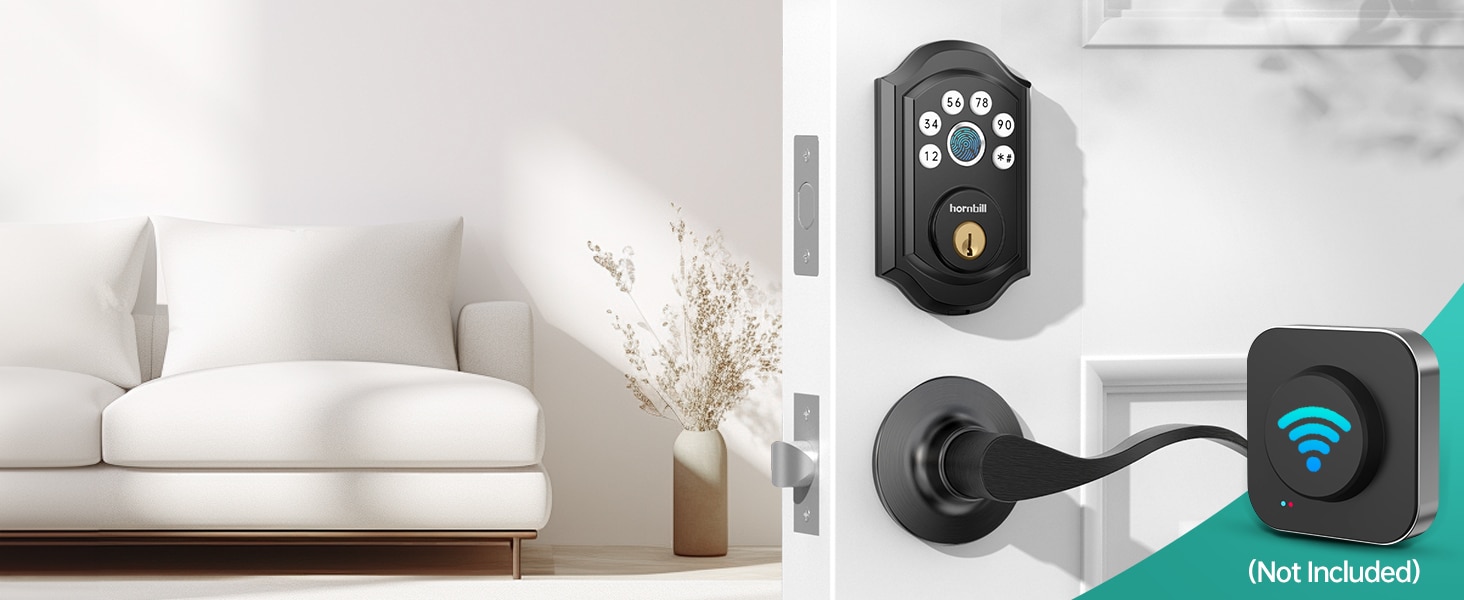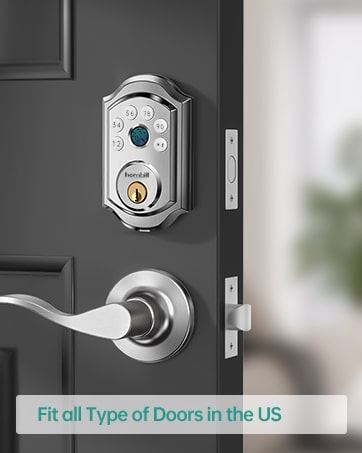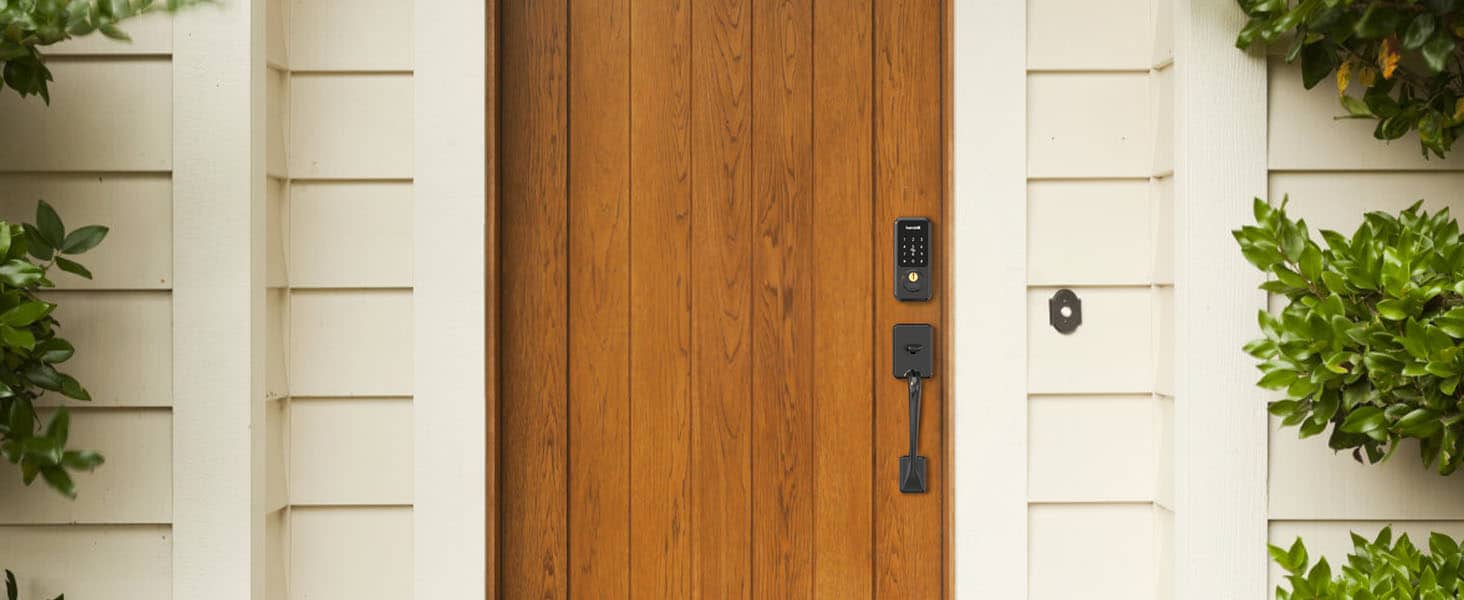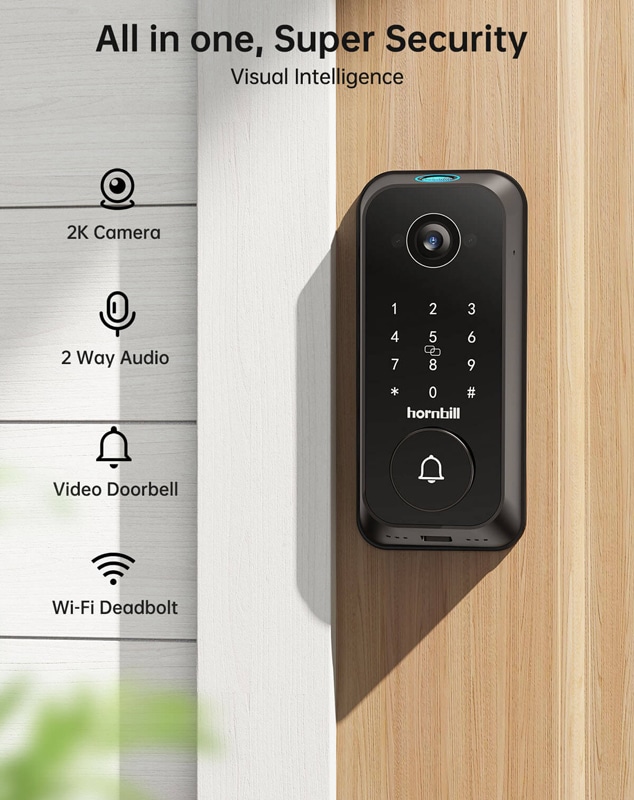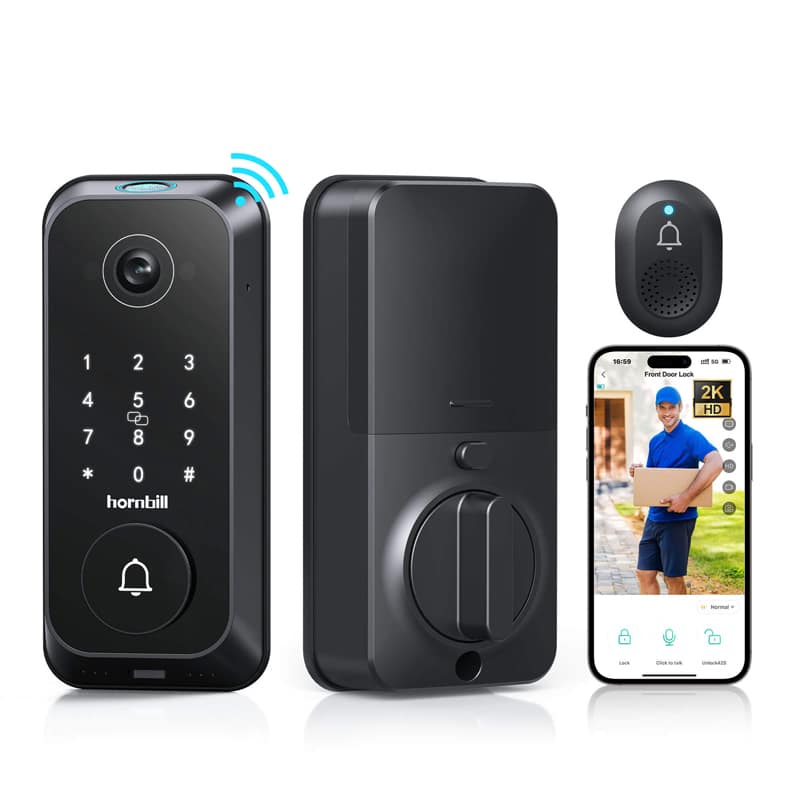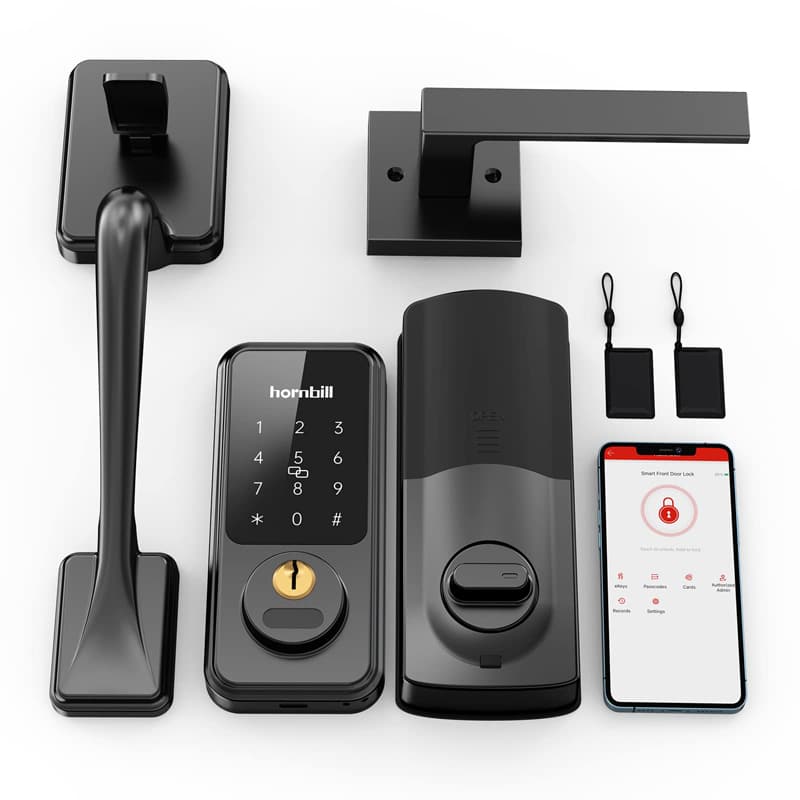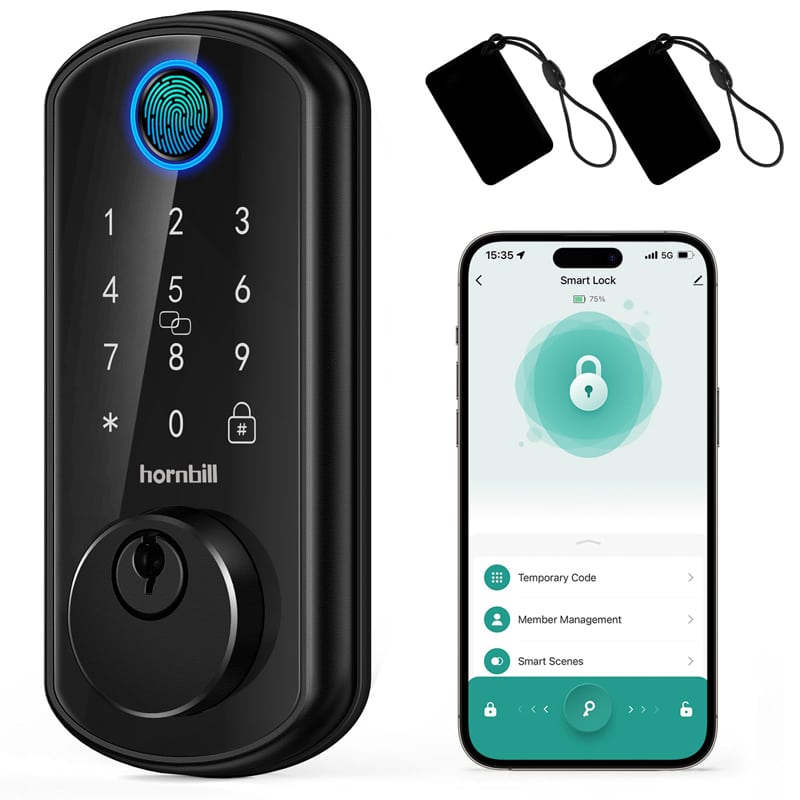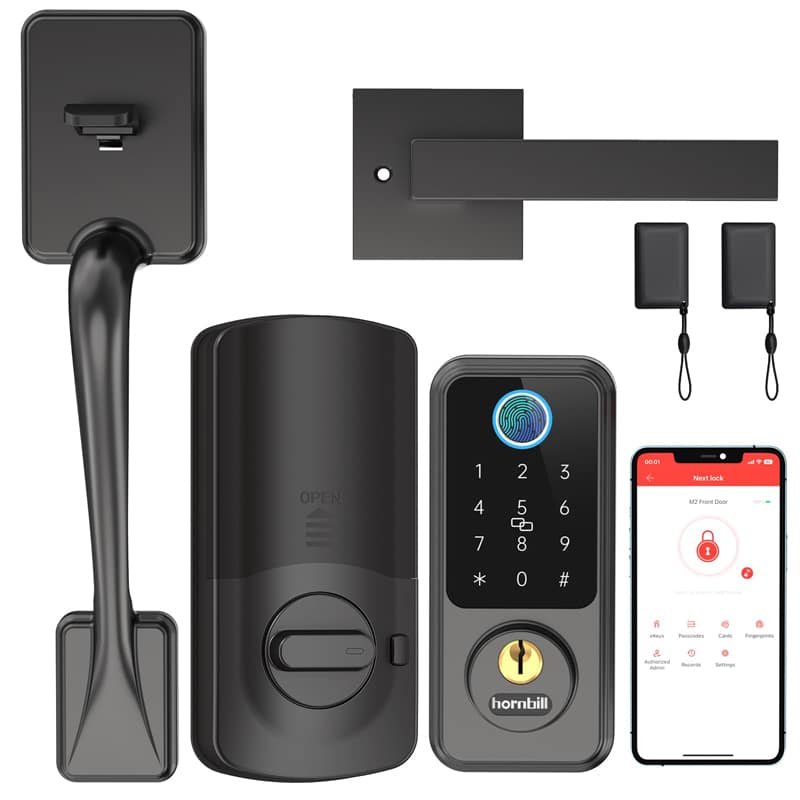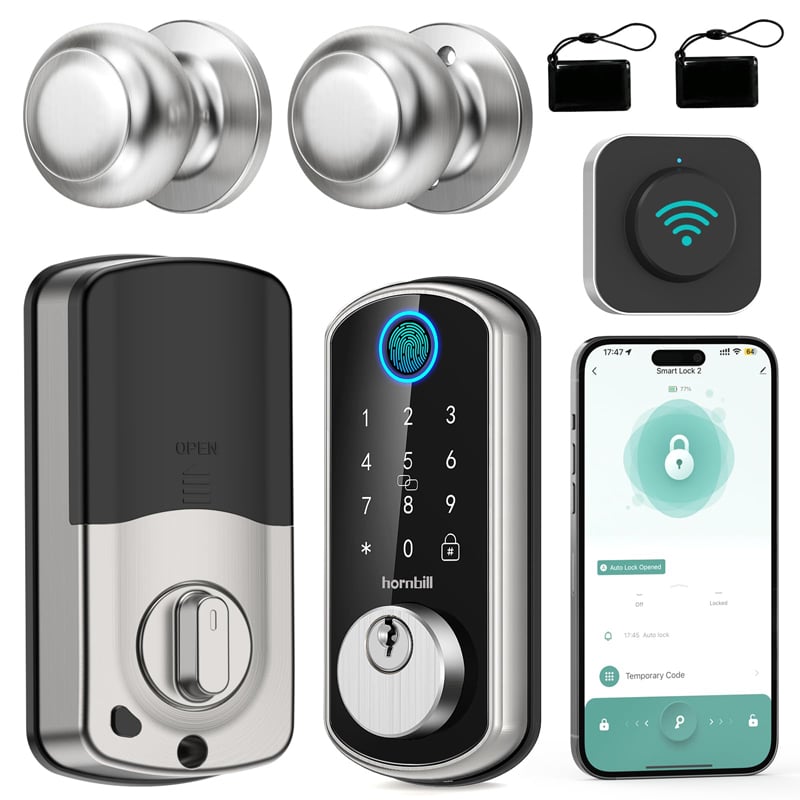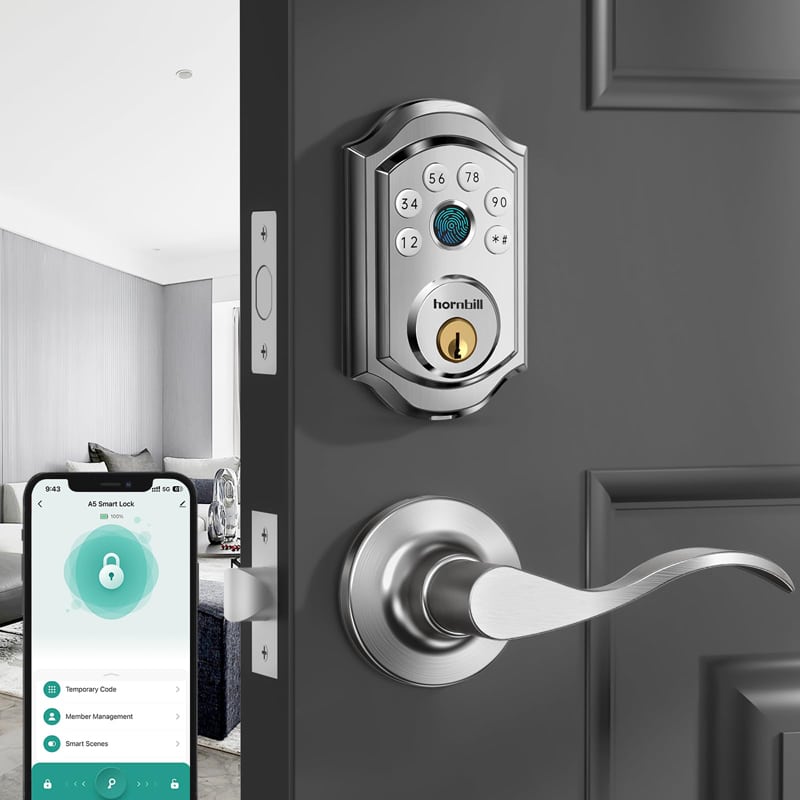In our increasingly digital world, keypad door locks have gained tremendous popularity for their convenience and security features. However, one crucial aspect that often goes unnoticed is their waterproof capabilities. In this article, we will explore the waterproof ratings of keypad door locks, how to choose the right one for extreme weather conditions, maintenance tips to ensure longevity in wet environments, and a comparative analysis of waterproof versus non-waterproof keypad locks. We will also highlight Hornbill’s keypad locks, which offer exceptional waterproof features designed to withstand the elements.
Understanding Waterproof Ratings: What Do They Mean?
Waterproof ratings are essential in determining how resilient a device, such as a keypad door lock with handle, is against moisture and water exposure. These ratings usually conform to the Ingress Protection (IP) standard, which classifies protective enclosures based on their resistance to water and dust. For example, a keypad lock with an IP65 rating indicates that it is completely dust-tight and can withstand low-pressure jets of water from any direction. This rating ensures that the lock is not only suited for heavy rain but also protected against dust ingress that could impact its functionality over time. Understanding these ratings can help consumers make informed decisions, particularly if they live in areas with harsh weather conditions. Hornbill’s keypad locks typically feature high IP ratings, making them a reliable choice for those concerned about water exposure.
Choosing the Right Keypad Door Lock for Extreme Weather Conditions
When selecting a keypad door lock for extreme weather, there are several factors to keep in mind:
- Waterproof Rating: As mentioned, look for locks with high IP ratings, like IP65 or higher. This ensures that your lock can withstand rain, snow, and humidity without losing functionality.
- Material Quality: Locks made from high-quality materials like stainless steel or reinforced polymers provide added durability against moisture. Hornbill’s keypad locks are constructed from premium materials that not only enhance their waterproof capabilities but also resist corrosion and wear over time.
- Temperature Tolerance: Consider temperature fluctuations in your area. Some locks operate efficiently in a wider temperature range than others. Hornbill’s products are specifically designed to function optimally even in extreme temperatures, ensuring your security isn’t compromised.
- Ease of Installation: A simple installation process can save you time and effort. Hornbill’s door lock with keypad comes with clear instructions, making it easy for anyone to set up their lock securely. By taking these criteria into account, homeowners can ensure they choose a keypad door lock that remains functional and secure, even in the face of extreme weather challenges.
Maintenance Tips for Ensuring Longevity in Wet Environments
Even the best waterproof keypad locks require some maintenance to guarantee long-lasting performance. Here are several tips: 1. Regular Cleaning: To avoid the build-up of dirt and grime, clean the lock regularly with a damp cloth. This not only preserves its aesthetic but also ensures that the keypad functions smoothly. 2. Lubrication: Use a silicone-based lubricant on key components to prevent rust and corrosion. Avoid using oil-based products, as they may attract dirt. 3. Check Seals and Gaskets: Regularly inspect gaskets and seals for any wear or damage. These components are critical in maintaining waterproof capabilities. 4. Battery Care: If your keypad lock is battery-operated, replace batteries regularly and during extreme weather changes to avoid performance issues. 5. Secure Installation: Ensure that the lock is installed correctly and all fittings are watertight. A poorly installed lock might allow moisture ingress over time. By adhering to these simple maintenance tips, your keypad door lock can withstand wet environments, preserving its functionality and extending its lifespan.
Comparative Analysis: Waterproof vs. Non-Waterproof Keypad Locks
The choice between waterproof and non-waterproof keypad locks can significantly impact your home’s security and efficiency, especially in regions prone to rain and snow. Waterproof locks offer numerous benefits, such as increased durability and reliability. They are typically more resistant to wear from environmental factors and have superior performance over time. For instance, Hornbill’s waterproof keypad locks are designed to operate flawlessly even after prolonged exposure to moisture. In contrast, non-waterproof locks may initially appear appealing due to their lower price point, but they often come with hidden costs. Over time, exposure to water can result in rust, corrosion, and eventual failure of essential components, leading to security vulnerabilities. The initial savings can quickly be outweighed by repair costs and replacement fees.
Ultimately, investing in a waterproof keypad door lock, such as those offered by Hornbill, ensures peace of mind and long-term value. Hornbill’s products are designed to provide top-notch security while seamlessly resisting the damaging effects of water, snow, and humidity. In conclusion, the waterproof abilities of keypad door locks are essential for ensuring a secure and functional entryway. By understanding waterproof ratings, choosing the right lock for extreme conditions, performing regular maintenance, and opting for waterproof models like Hornbill’s, homeowners can enjoy peace of mind knowing their security is protected from the elements.

